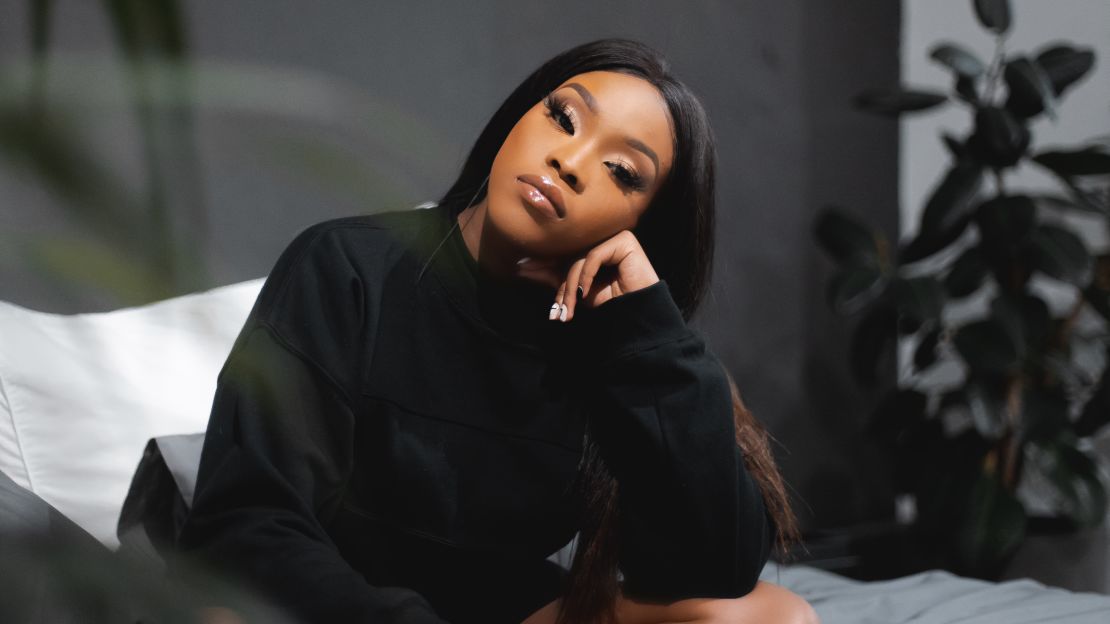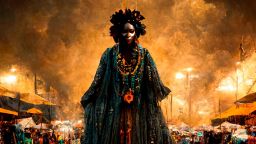A fortnight ago, Motswedi Modiba was a South African singer showing signs of a promising career in her home country. Now she’s a breakout hit on one of China’s largest reality TV shows after wowing millions with her performance in Mandarin.
Modiba, reported to be the first Black and African contestant on “Sing! China,” impressed the judges with her cover of the ballad “Love” by Karen Mok.
The competition, in its eighth season, follows a similar format to “The Voice” in the US, with the first round judged blind. Two of the four judges selected Modiba to progress to the next round, forcing the singer to pick one as a mentor for the latter stage of the competition (she chose singer, rapper and actor Wilber Pan.)
The singer lit up Chinese social media: “How could Motswedi sing so well?” wrote music blogger Radio Utopia to their 11.8 million followers on Weibo, while the hashtag “I cannot compete with Motswedi” trended in reference to a quote from competition judge Joker Xue.
Not bad for what started as a joke on TikTok.
Kickstarting a career

Life has come at Modiba fast – but behind the headlines are years of hard work.
Born in Tshwane, South Africa, the 26-year-old told CNN her parents sent her to Pretoria Chinese School, where she learned Mandarin from age six to 18. (“They looked at world trends and saw China was probably going to become an important world player economically, so wanted to give us the best opportunities in life,” she explained.)
In high school, Modiba entered an international language contest called the Chinese Bridge Competition, winning the national category, and says she earned a scholarship to study Chinese language and literature at Yunnan Normal University in Kunming, China.
As a child she had performed on the recording of song “Baba Wethu” by South African gospel artist Tebs David, and at university in China she entered small-scale singing competitions, singing in Mandarin. In 2022 she launched a career in South Africa as MOE. with single “It Was A Vibe,” winning a Metro FM Music Award.
Until recently, she was studying for a master’s degree in jazz arts at the Manhattan School of Music, New York. One night last April, she joked with friends about trying to make a viral hit on Douyin (the name for TikTok in mainland China), and posted a video of her singing. “It does go viral,” she recalled. “Then I post another one and it goes viral … within about two weeks, I had over a million views.”
Emails began landing in her inbox, including one from a producer of “Sing! China.” By June she was in China preparing to audition.
“It wasn’t calculated at first,” she said. “But when I started posting … that kind of made me feel maybe there might be something here – there might be a space for me in China to try something.”
Other African artists have made inroads into Mandopop (Mandarin pop music), like Modiba’s compatriot Eli Zaleo. Modiba insists she’s not following in their footsteps, pointing to the range of genres, including RnB, ballads and jazz, that she flits between.
But she’s not content to limit herself to a Chinese audience. “I want to become a household name around the world,” she said. “Right now I’m in China, and I’m doing ‘Sing! China,’ but I am also trying to cultivate audiences back home in South Africa, in Africa, in the US.”
“I feel honored”
Modiba described her “Sing! China” audition, broadcast on August 11, as life coming “full circle,” after performing the song years before at a student competition. With a much larger audience this time, “nerves completely took over me,” she said. “There was so much adrenaline that I can’t really remember how I felt during the performance.” (Watch her full performance here.)
The singer said she has a few weeks before filming commences of the “battle” rounds, where performers compete against each other head-to-head. Preparations are underway, she said, including costume and hair and makeup, and a song choice that she’s not at liberty to discuss.
“I really do feel honored,” Modiba said of her boundary-breaking run in the show, “getting into spaces that generally people from outside (of China) wouldn’t think of getting into.”
She now commands?more than 250,000 followers on Douyin, where the reaction to her audition has been overwhelmingly positive. It stands in stark contrast to anti-Black racism on Chinese social media platforms, which a recent Human Rights Watch report described as having “become common in recent years, often created by netizens for the purpose of attracting traffic and generating profit.”
Modiba said she had heard that some on social media have debated whether she is actually South African or Black (“I’m definitely completely South African Black,” she said).
“Yes, I’m in China singing in Mandarin, and I’m speaking in Mandarin, but that doesn’t mean that I am not proud of who I am,” said Modiba.
“I’m not trying to get away from my African-ness. I celebrate and I love that I’m a South African,” she added, teasing she’s working to include parts of her heritage into upcoming performances, whether that’s in costume or a verse or two in Sotho, another language in which she’s fluent.
Is another vocal knockout on the cards? Audiences in China will soon find out.


